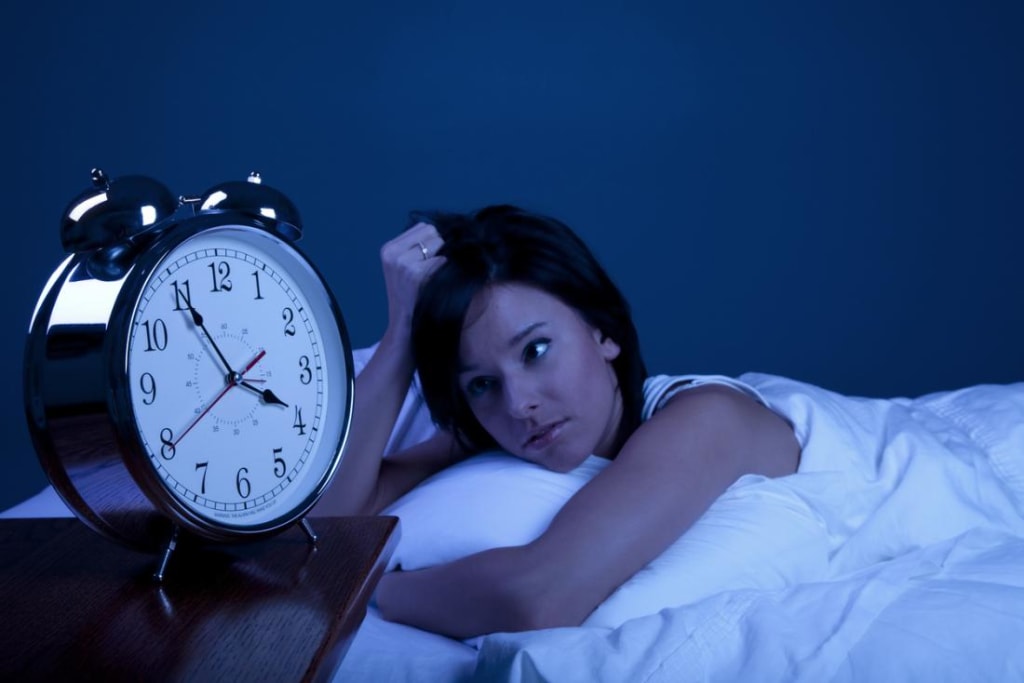What happens if you don't sleep for a whole day?
What happens if you don't sleep for a whole day?

Hello guys, today we see about the What happens if you don't sleep for a whole day? Let's start,
Sleep is an essential part of our daily routine. It allows our body and brain to rest and recharge, preparing us for the challenges of the day ahead. However, for some people, getting enough sleep can be a challenge. In fact, many of us have experienced a sleepless night at some point in our lives. But what happens if you don't sleep for a whole day? In this article, we will explore the effects of sleep deprivation on the body and mind.
The Effects of Sleep Deprivation
When we sleep, our body and brain go through a series of important processes that are crucial for our physical and mental health. These processes include memory consolidation, hormone regulation, and tissue repair. When we don't get enough sleep, these processes can be disrupted, leading to a range of negative effects.
One of the most immediate effects of sleep deprivation is fatigue. Without enough rest, our body and mind become exhausted, making it difficult to concentrate, think clearly, and perform even simple tasks. This can impact our productivity at work or school, as well as our ability to engage in social activities.
Sleep deprivation can also have serious effects on our physical health. Studies have linked chronic sleep deprivation to an increased risk of obesity, heart disease, and diabetes. Sleep is also important for immune system function, so lack of sleep can make us more susceptible to infections and illness.
Additionally, sleep deprivation can have negative effects on our mental health. It is associated with an increased risk of depression, anxiety, and other mood disorders. This may be due to the disruption of important brain processes that occur during sleep, such as emotion regulation and cognitive control.
What Happens If You Don't Sleep for a Whole Day?
If you don't sleep for a whole day, the effects of sleep deprivation can be severe. In the first few hours, you may experience drowsiness, difficulty concentrating, and irritability. As the day progresses, you may start to feel more fatigued and find it difficult to stay awake. You may also experience physical symptoms such as headaches, muscle aches, and eye strain.
If you continue to stay awake, the effects of sleep deprivation can become more severe. After 24 hours of wakefulness, you may experience hallucinations, cognitive impairment, and a decrease in motor skills. Your body may also start to shut down non-essential functions, such as digestion and immune system function, in order to conserve energy.
After 36 hours of wakefulness, you may start to experience microsleeps, which are brief episodes of sleep that can last for a few seconds. During a microsleep, you may appear awake, but your brain is actually asleep. This can be dangerous if you are driving or operating heavy machinery.
After 48 hours of wakefulness, the effects of sleep deprivation become even more severe. You may experience a complete loss of cognitive function, including memory loss and disorientation. Your body may also start to shut down essential functions, which can lead to coma or even death.
How to Avoid Sleep Deprivation
To avoid the negative effects of sleep deprivation, it is important to prioritize sleep and establish healthy sleep habits. This can include setting a regular sleep schedule, creating a relaxing sleep environment, and avoiding caffeine and alcohol before bedtime.
If you are having trouble sleeping, there are several strategies that can help. This can include relaxation techniques, such as deep breathing or meditation, or sleep aids, such as melatonin supplements. It is also important to speak with your doctor if you are experiencing chronic sleep problems or have a sleep disorder.
In conclusion, sleep is an essential part of our daily routine, and the effects of sleep deprivation can be severe. If you don't sleep for a whole day, you may experience a range of negative effects on your physical and mental health. To avoid the negative effects of sleep deprivation, it is important to prioritize sleep and establish healthy sleep habits. This can have a positive impact on your overall well-being, including your physical health, mental health, and productivity.
That's all, if you like this article, please like and don't forget to follow me.
Thank you and thank you for your support.
More intersting articles coming soon.
About the Creator
Viral Monkey
Hello Everyone






Comments
There are no comments for this story
Be the first to respond and start the conversation.